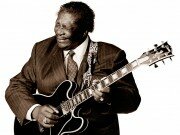
Podcast: |
I am an avid reader. When I pass over something that grabs my attention, I bring it to you and give credit where it is due. Today I am giving credit to Paul Ng and his blog “The Self in Investing”. He seems to take a Zen-like approach to the art of investing, and wrote an interesting post on multi-millionaire Grace Groner – who was not active in the stock market, but yet left behind a $7 million stock-based gift to her alma mater.
Grace Groner’s Inspiring Investment Style
I doubt that Grace Groner thought that “capitalism is broken” or that “the market is dead money” when she died in January at age 100 outside Chicago. Groner’s estate left a $7 million fortune grown from a small stake in Abbott Laboratories to her alma mater, suburban Lake Forest College. It was the largest gift in the school’s history.
How did she amass such a sum? After graduating in 1931, Groner began work as a secretary at Abbott Labs. A few years later, before the advent of 401(k)s, IRAs or any other prodding from the government, she bought three shares of Abbott, which cost her $180 – about $2,900 in today’s dollars. Then she waited. She waited through the depths of the Great Depression and through a massive World War. She waited though the Cuban Missile Crisis, and Vietnam, and Korea, and the historic inflation of the 1970s. She waited through Republican and Democratic administrations, through periods of political liberalism and conservatism. She didn’t use Fibonacci retracements, high-frequency trading or advanced moving averages, but simply reinvested her dividends and never sold. Likewise, she is unlikely to have read Ben Graham or Taleb. If she did, she may have sold her stocks much earlier (because she was likely then to be an active investor).…she bought just three shares of Abbott Labs in 1935… then she waited, and waited… and, after many splits, her three original shares became 129,000 shares worth roughly $7 million
After many splits, her three original shares became 129,000 shares worth roughly $7 million.
What permitted her to hold on to her investment over a lifetime… was that she lived within her means. Groner was thrifty – perhaps from her experience with the Depression. Grace did not drive but walked around her town of Lake Forest, Ill. just outside Chicago. She owned a house that she had inherited from a friend. The one-bedroom place was stocked with the barest of possessions. She bought second-hand clothes at yard sales. She also enjoyed giving money to needy local residents, and many years ago she even established a scholarship program at Lake Forest College by donating $180,000.
Unlike investors who rang up debts during the 1990s tech frenzy and the 2000s real estate boom, Groner was thrifty, rarely splurging on purchases outside of travel and charity. Even after she became a millionaire, she didn’t live like one. In today’s populist culture, we too often paint “the rich” as conniving Uncle Scrooges, dining on caviar and foie gras between dips in their bathtubs full of gold.
You know, Warren Buffet said “Investment is simple but not easy.” Simple as Grace Groner made it, but difficult… because of our human temperament! Most of us don’t want to wait 65 years for our money to compound into millions. Of course, Grace was fortunate to buy into a great business and, unlike most of us, was thrifty and lived well within her means. Most of us would have probably sold much sooner.
Market Looking Overbought? Get Back to the Basics
When the market appears to be selling off a bit, it’s always time to go back to the basics, and Paul Ng recommends looking back at Ben Graham who was also Warren Buffett’s mentor and teacher.
When the market is desolate – everyone has lost money on everything. We are so consumed by mental anguish that it is difficult to make rational decisions. The future is seems so bleak and every piece of news added to your agony.
Nevertheless, the financial future is no more uncertain now than it used to be; in fact, it is far less uncertain than when the market was at its peak, the future seemed bright, and no one even imagined the disaster that would befall the market. Now, we realize that the absolute certainty of blue skies ahead then was an illusion. But all we now is the feeling and fear that worse misery may lies in store. At this point of time, we may not be aware that this notion is also most likely to be an illusion.
If the market starts plunging, most people panic, and the easiest thing is to join in the mass exodus. Many stressed-out investors liquidated their whole portfolios in March of 2009, just as equities bottomed out. Markets fluctuate. Though stock prices may change every second and minute, stock values should remain the same unless there are fundamental changes. Why suffer mental anguish over something which we have no control over? We, however, can control how we respond to it.
It can be absolutely terrifying to be in the midst of a market crisis. However, we cannot base our decisions on fear and must make rational decisions. So when opting between following your emotions or investment plan, stick with your plan. Panic will not last forever, the crisis will eventually tail off. All crises will passed as the history of markets has shown over the past 200 years – Markets do recover. When in a market crisis, think “This too shall pass.”
Do not panic. Do not sell off. Flight to safety is like locking the barn door after the sheep have run off. You are unlikely to buy back until the market has risen and regret will cause you to buy near the market peak – what Jason Zweig calls the Sheepish Bulls.
Buffet said: When others fear, we are greedy. When others are greedy we are fearful. We invert our emotions. Market crisis offers us the best opportunity to buy good stocks at wonderful prices. History has shown that the best money was earned by people who stepped up and bought stocks and kept buying on the way down during market crises. Those who fled stocks for the safety of bonds and cash suffered. As is popularly known – buy when there is blood in the street; even if that blood is yours.
So view a market crisis as an opportunity and an advantage. Though bear markets may be gut-wrenching, they are the only means by which future returns can be raised.




















